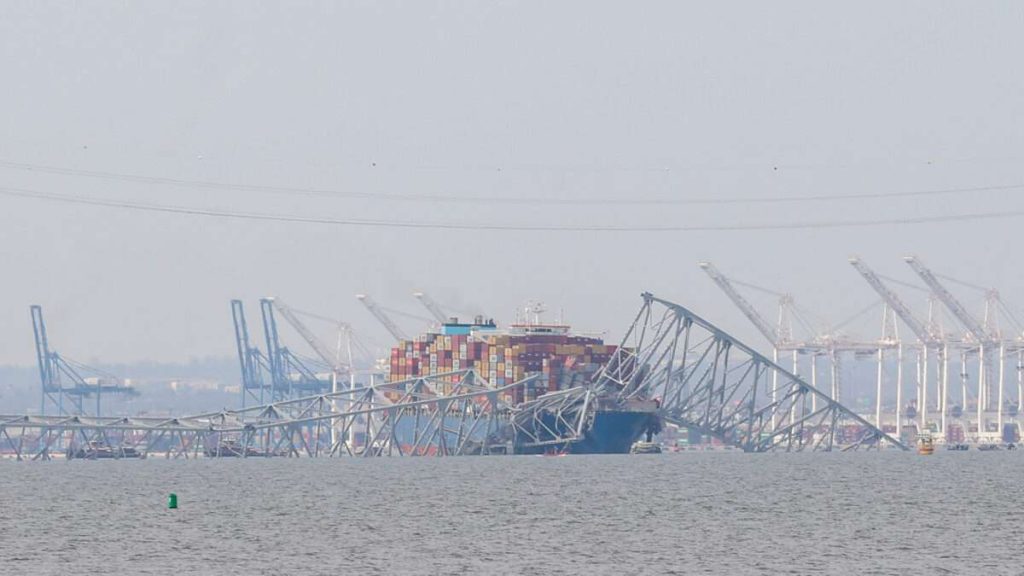Recovery efforts remain underway in the aftermath of the collapse of Baltimore’s Francis Scott Key Bridge, which was struck by a container ship early on Tuesday. Vehicles and multiple construction workers fell into the river below. Two men were rescued from the water, while six are still missing and presumed dead.
Little is known about why the ship struck the bridge. The National Transportation Safety Board, which is investigating the incident, is still assessing reports that the vessel lost power before the collision. Numerous far-fetched theories about the incident are now circulating to fill the knowledge gap, including one floated by Fox News host Maria Bartiromo.
“The White House has issued a statement on this saying that ‘there’s no indication of nefarious intent in the collapse of the Francis Scott Key Bridge,'” said Bartiromo yesterday, prefacing an interview with Sen. Rick Scott (R–Fla.). “Of course, you’ve been talking a lot about the potential for wrongdoing or potential for foul play given the wide-open border.”
Despite Bartiromo’s implication that the tragedy at the Key Bridge might be linked to border crossers, the details of Tuesday’s incident say far more about the contributions of immigrant workers than they do about the perils of an “open border.”
“Jesus Campos, an employee of contractor Brawner Builders, had worked the overnight shift of the bridge work before switching to another,” reported The Baltimore Banner. “He said the missing men are from El Salvador, Guatemala, Honduras and Mexico.” The New York Times confirmed that at least one of the missing men was from El Salvador and two were from Guatemala.
In other words—based on what’s currently known about the victims—the men working on the Key Bridge when it collapsed were immigrant workers who sought better economic opportunities and ended up filling difficult jobs. “They are all hard-working, humble men,” said Campos, and all came to the country to help their loved ones in their home countries, the Banner reported.
Immigrants have long worked jobs that Americans don’t want, including dangerous and grueling ones. “Immigrants are in fact more likely to work in risky jobs than U.S.-born workers,” wrote economists Pia M. Orrenius and Madeline Zavodny in a 2009 article in Demography. Physically demanding jobs—including construction and agricultural work—are disproportionately filled by immigrants. Roughly 2.2 million of the country’s construction workers, or one-quarter of the total construction work force, was foreign-born as of 2015, the Urban Institute reported.
“This catastrophe has already disproportionately impacted our city’s immigrant community, one that often toils in demanding and dangerous jobs to the benefit of all who call Baltimore home,” said Krish O’Mara Vignarajah, president of Global Refuge, an immigration services nonprofit based in Baltimore, in a statement yesterday.
The workers who fell into the Patapsco River on Tuesday were doing what many other immigrants do here. They were performing strenuous, dangerous work—work that benefits their American neighbors—to make a living and support their loved ones. Rather than offer clear proof of the consequences of a “wide-open border,” the Key Bridge’s collapse highlighted the contributions of hardworking immigrants, many of whom take on foreseeable—and, in this case, unforeseeable—risks.
The post The Immigrant Workers Who Died on the Baltimore Bridge Were Hardworking Heroes appeared first on Reason.com.





